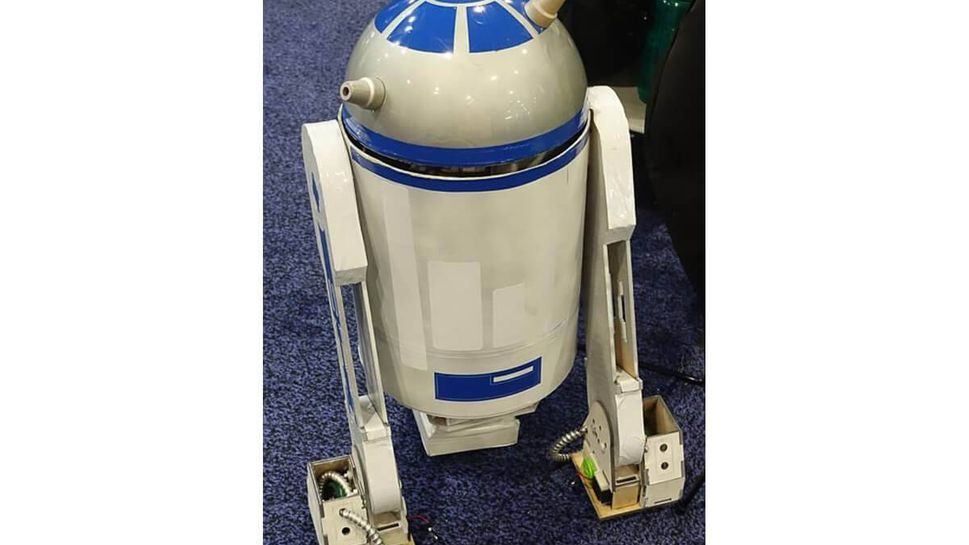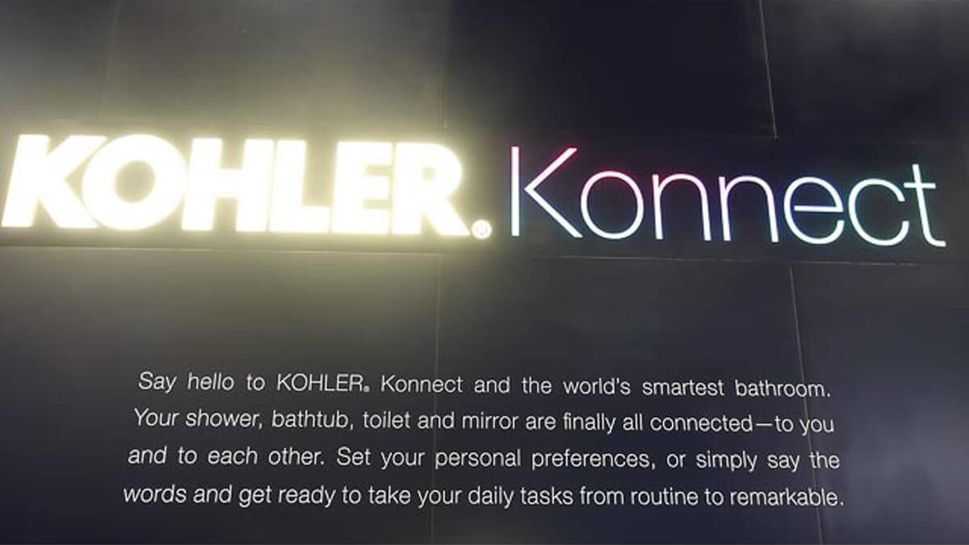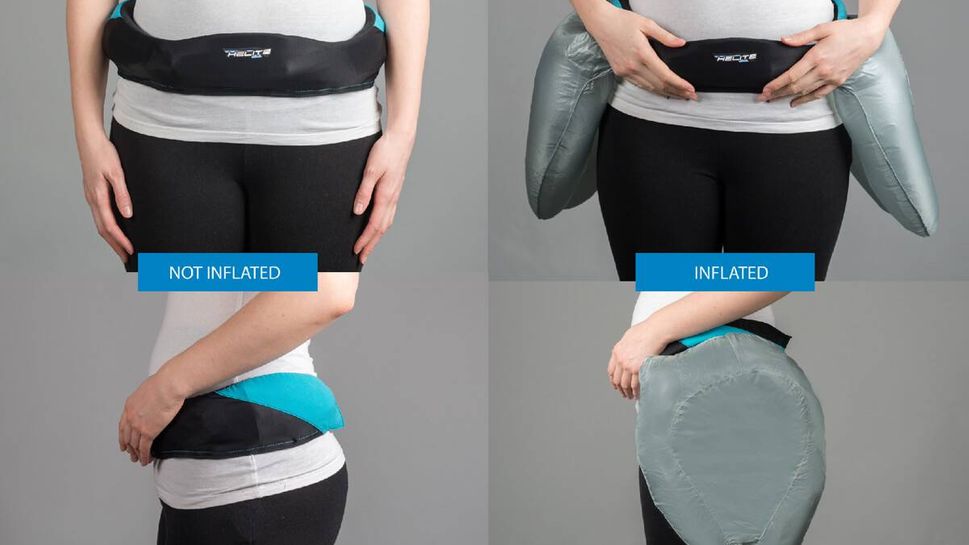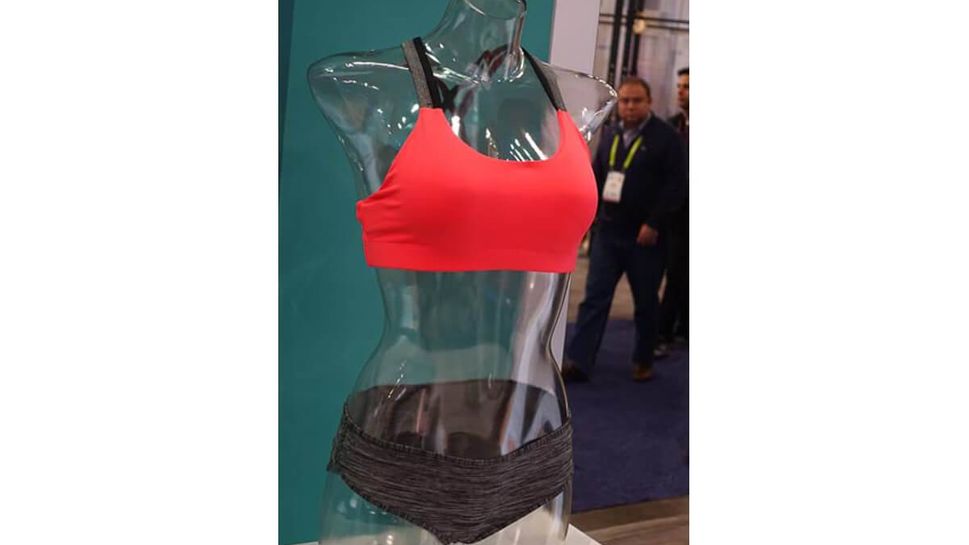Considering the Latest Smart (and Not So Smart) Tech Devices
A Next Avenue co-founder reports from the 2018 Consumer Electronics Show
1 of 4

This R2D2-like robot is one of the many "smart" new robots that was shown at the 2018 Consumer Electronics Show (CES). Many of the newly developed robots are being marketed as “caregivers” and “babysitters.”

Kohler offered visions of "the world's smartest bathroom."

A new product encourages older adults to wear a belt that senses when a person is losing balance and inflates like an airbag to protect them.

A new line of "smart" bras and underwear are implanted with tools to measure your biometrics and vital signs.
Having just returned from the annual Consumer Electronics Show (CES), one of the biggest and glitziest tradeshows in Las Vegas, I can report one theme that came through loudly and clearly: The inanimate objects of shoes, showers, toilets, cars, socks, mirrors, toothbrushes, combs and ukuleles have secretly been attending some underground university and are now proudly announcing they are “smart.” I am quickly developing an inferiority complex.
One well-known manufacturer of bathroom products confidently announced that “finally” the shower, toilet, faucets, lights (and who knows what else) share their intelligence and are connected. Just by your saying a few words, the marketing materials told me to “get ready to take your daily tasks from routine to remarkable.” I blushed.
What does all of this mean for you?
The good news is that advancements in technology and new products are here (and more on the way) offering to make our lives better as we age. Several products are featured in the slideshow above, and I identify more overall trends in technology and aging below:
'Honey, I Can’t Read the Menu.'
'WHAT?'
Vision loss and hearing loss are likely to be things that many of us are currently experiencing, or will experience in the future. Technology as simple as having a light on your smartphone in those dimly lit and trendy restaurants is a blessing. Today we have cheaters, but tomorrow, bionic eyes or visual prosthetics may be as common a procedure as Lasik surgery is today for people with vision issues.
More imminent are advances being made with hearing devices. On Aug. 18, President Trump signed into law the Over the Counter Hearing Aid Act of 2017. This is a good thing, since more affordable and technically advanced products will become available soon.
Some research suggests that people will often wait five years or more before acknowledging they have hearing loss. After all, people are just not speaking as clearly as they used to.
'I Will Not (!) Give Up My Car Keys.'
As many of us know, having to give up the car keys can be devastating for older adults. But often, it is necessary in order to prevent older drivers from being a danger to themselves and others.
The “autonomous” car is coming, and that is a fact. On the market today, however, are “partially autonomous” cars and safety features that can extend how long you can be transportation independent. Today’s cars help you stay in your lane; can control your speed if you are too close to the car in front of you; alert you to vehicles in your blind spots and can handle tough parallel parking jobs. It won’t be long before cars will be fully automated.
Greyb Research provides a detailed analysis of the future of autonomous vehicles, but for a glimpse into a George Jetson future, take a look at this report from CNET about how you will be able to drive by just thinking about it someday!
'Let’s Keep in Touch.'
Loneliness and isolation are common and debilitating for people as they age, and many consider older adults' loneliness to be a public health crisis. Coming to market are more products that will make it easier for families and friends to connect — to share pictures and experiences and to share them just with those you choose — not all of your Facebook friends and work acquaintances.
But many of these apps and tools still have to be accessed on smartphones, tablets or desktop computers which can be cumbersome for folks who are not comfortable with devices and technology.
Some of these types of technology services were on display at CES, and Next Avenue has a financial partnership (full disclosure) with a new product called grandPad, which I have used and think is great. This is a specially designed tablet that can connect everyone in your family, young and old. The tablet is really designed for older people who just can’t deal with technology and who might have trouble with fine motor skills required of some tablets.
You give grandPad to Mom or Dad or Uncle Edgar, and it is pre-loaded, so with one touch, the owner is video-calling you to connect. The user can see pictures you upload of the soccer game where your granddaughter scored the winning goal. You, your kids and grandchildren use apps on your smartphones to connect with the grandPad. Calls can be made and received with one touch, and users can easily see who's calling because a large picture of the caller appears on screen.
The tablet is loaded with games, music and much more and because it comes with an unlimited 4G data plan; you don't need to hook it up to wi-fi to make it work.
If you are intrigued or interested, know that Next Avenue readers can use the special Next Avenue discount code for a special deal (and for each grandPad ordered, the company supports Next Avenue in turn).
I am now going to see if any of my socks have gotten smart. Mine just seem to disappear in the dryer.

